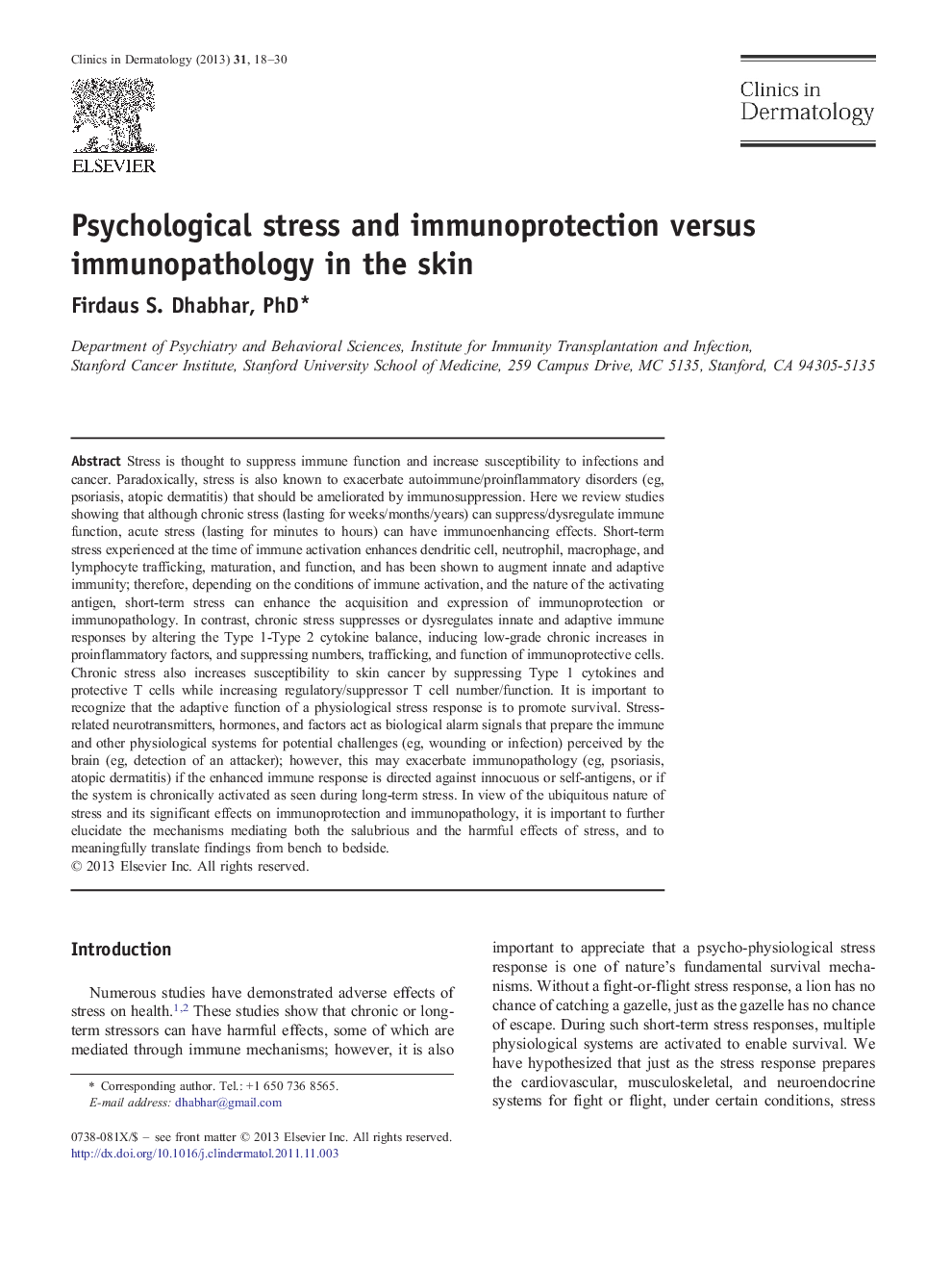| Article ID | Journal | Published Year | Pages | File Type |
|---|---|---|---|---|
| 3194489 | Clinics in Dermatology | 2013 | 13 Pages |
Stress is thought to suppress immune function and increase susceptibility to infections and cancer. Paradoxically, stress is also known to exacerbate autoimmune/proinflammatory disorders (eg, psoriasis, atopic dermatitis) that should be ameliorated by immunosuppression. Here we review studies showing that although chronic stress (lasting for weeks/months/years) can suppress/dysregulate immune function, acute stress (lasting for minutes to hours) can have immunoenhancing effects. Short-term stress experienced at the time of immune activation enhances dendritic cell, neutrophil, macrophage, and lymphocyte trafficking, maturation, and function, and has been shown to augment innate and adaptive immunity; therefore, depending on the conditions of immune activation, and the nature of the activating antigen, short-term stress can enhance the acquisition and expression of immunoprotection or immunopathology. In contrast, chronic stress suppresses or dysregulates innate and adaptive immune responses by altering the Type 1-Type 2 cytokine balance, inducing low-grade chronic increases in proinflammatory factors, and suppressing numbers, trafficking, and function of immunoprotective cells. Chronic stress also increases susceptibility to skin cancer by suppressing Type 1 cytokines and protective T cells while increasing regulatory/suppressor T cell number/function. It is important to recognize that the adaptive function of a physiological stress response is to promote survival. Stress-related neurotransmitters, hormones, and factors act as biological alarm signals that prepare the immune and other physiological systems for potential challenges (eg, wounding or infection) perceived by the brain (eg, detection of an attacker); however, this may exacerbate immunopathology (eg, psoriasis, atopic dermatitis) if the enhanced immune response is directed against innocuous or self-antigens, or if the system is chronically activated as seen during long-term stress. In view of the ubiquitous nature of stress and its significant effects on immunoprotection and immunopathology, it is important to further elucidate the mechanisms mediating both the salubrious and the harmful effects of stress, and to meaningfully translate findings from bench to bedside.
